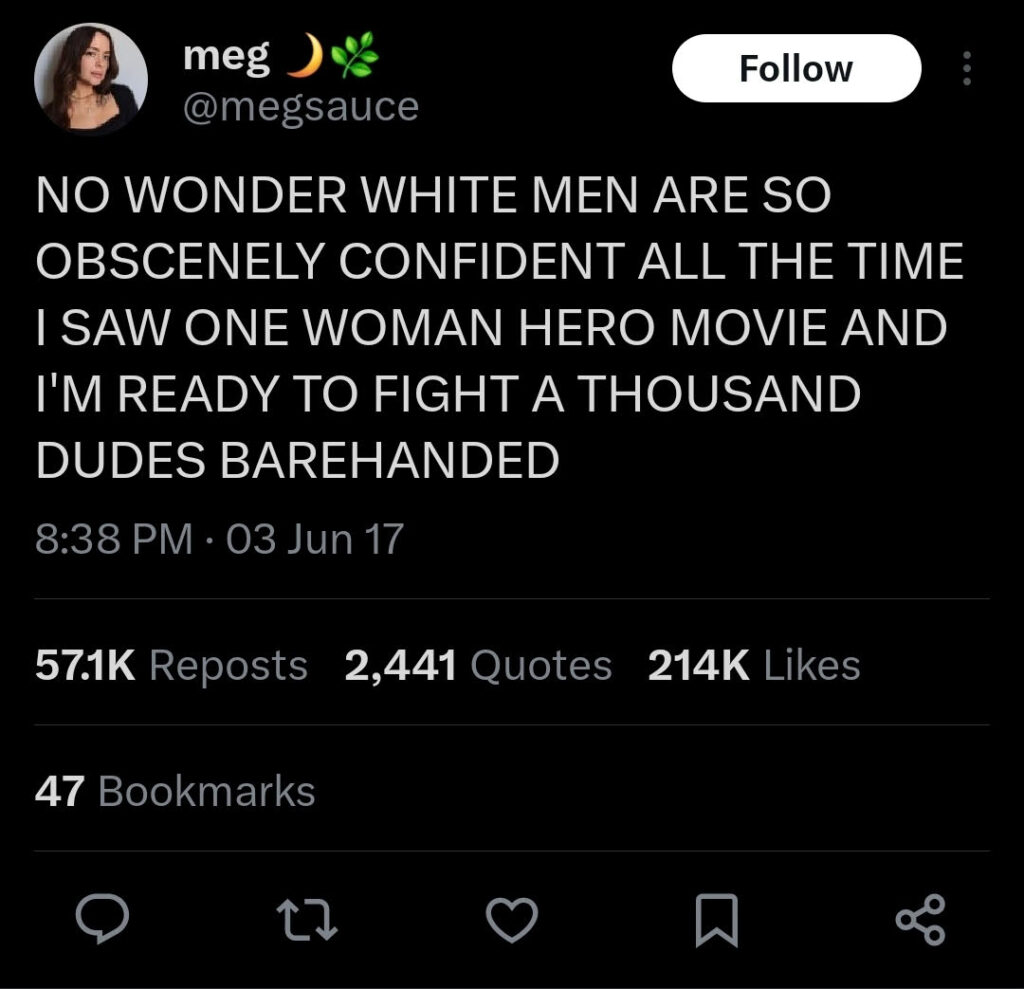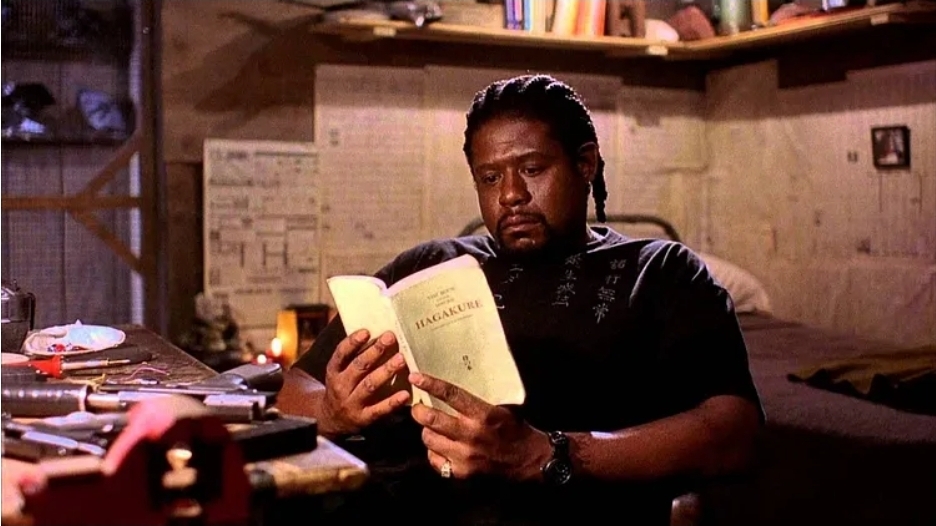The allure of mystery is inescapable in the upcoming quadruple lineup for the 80s ACTION EXTRAVAGANZA II: THE QUICKENING. We do not actually know what the movies in question will be. I tried to find any info about the first extravaganza, but even after a righteous session of Google-fu, I was able to find the posting regarding the actual premier event, but no information about what movies ended up being shown that first year. So we can’t even narrow down our possibilities with any information about round one. Only the Trylon knows where the bodies are buried on this one.
So how do we predict the uselessly predicted? Obviously someone knows the true answer, but without the pure uncut mania known as Conjecture, I don’t really have the gas for a full essay, so unsupported theorizing it is!
What do we know? Nothing but a title: 80s ACTION EXTRAVAGANZA II: THE QUICKENING. First and foremost—Highlander 2: The Quickening is a 90s movie, so that gerund verb is a red herring (unless it’s a reverse herring and they’re showing the first Highlander, which is possible). So what’s an 80s Action Movie? That is a very particular taste of an action movie, there are clearly action movies that came out in the 80s that aren’t 80s Action Movies. They contain a certain “I don’t know what” (I’m not typing that in French; there is no French spoken in 80s action movies, unless it’s by bad guys, or ineffectual “allies.”)
By way of first comparison: Terminator is Action. Commando is 80s Action. There are quips (that’s plural, not just the one–even though Terminator has one of the most famous, it is not inundated with quips as a proper 80s Action would be). An 80s Action movie could involve an annihilation of a vaguely jungle state and/or nation if they threatened your daughter (does Predator count, if the daughter in question is “American Pride”? Possibly, it’s a border case).
Does Gremlins count? No, Gremlins is a Christmas movie.
Does that disqualify Die Hard? No, Christmas doesn’t disqualify Die Hard. Die Hard is an 80s masterpiece, which means by default it can’t be an 80s Action Movie. 80s Action Movies are many things, but groundbreaking quality is not one of them. If they were, I’d be personally offended.
Ghostbusters 1 & 2. No, those are 80s Comedies. That would count Caddyshack just because things blow up at the end. These rubrics must be rigidly defended, the ghost of Ronald Reagan is counting on us.
The Trylon’s preview trailer showed Jackie Chan movies (another false flag—the asterisk specified that none of the trailered films will be showing). Is the 80s Action movie a particularly American genre? I would submit that it is. You can show foreign 80s Action movies and they will count, but only if they are dubbed poorly. Two fronts in this argument: 1) the cultural insult toward non-American nations helps with the points (remember Commando) and 2) There must emphatically be no subtitles—reading skill would be verboten in something like an 80s Action Movie, obviously.
No reading, no subtlety, no growth, no new lessons—only a resolution and renewed appreciation and gratitude to whatever bucolic suburban and/or American Hegemonic perfection the movie started with that was interrupted for 84 action-packed minutes of the 90-minute film. Rambo II & Rambo III count, Rambo I does not (he doesn’t even intentionally murder anyone in the first one, come on). I admit I’m blatantly making the rules up as I go, but they at least have to make sense while I’m doing it. That’s what I’m paying me for. This would all also exclude something like The Thing—besides just my made-up rule about excluding Masterpieces, it also has A Point To Say about the inherent paranoia baked into Toxic Masculinity, as well as suggesting that zealous and eager violencia leads only to mutually assured destruction for all players. That is Action, that is Sci-Fi, that may be Creature Feature better than it’s ever been done or will be done, and it was made in the 80s. It is E.T. With Real Stakes For Grown Ups, and therefore better, but it is not an 80s Action Movie.
Where does that leave us to guess what the Trylon has up its sleeve? Rocky 3 & 4? More 80s Sports than 80s Action. Dirty Harry 4 & 5? Maybe. Not impossible, but also low on the list of big hits—I had to search for release dates for the whole collection. Lethal Weapon 1 & 2? Possibly, but not weird and unique enough for me to bet the house on. This is, after all, the Trylon we’re talking about–they have certain standards of impressivity to meet. And I always bet on The Trylon.
So where does that leave us? What clues have been staring us in the face? What other signs and wonders could there be to point us in the right direction?
Approaching from the other direction, backwards from the rear end: What is an Extravaganza? What does that term elicit? Engage in your emotional synesthesia, what does Extravaganza feel like? What doth it suggest?
To quote my friend Mike, who I asked (because the idea of writing an essay about a bunch of movies you don’t know ahead of time is something you Phone A Friend on): “Extravaganza suggests to me that everyone’s included. It just has so much, in terms of the ride.” And this is what it feels like when someone drops a skeleton key into my lap, because Mike was absolutely right. It’s got everything! Says the tagline! Guns, dames, fights, action, bad guys! It doesn’t have to be over the top the whole run time (then you have no frame of reference for The Top), but it at least needs to be overer-topperer than its cinematic peers. And while we were forced to previously disqualify John Carpenter because he had the gall of writing Characters with Working Brains in The Thing, we have no such compunction against something like, say, a seven-minute fist fight over a pair of sunglasses in They Live. And while there might be a Message in They Live (“trust no one in charge of anything”), it’s at least a socially allowed message for the 80s as a whole, and leads to no character development which is the real version of themes that we’re avoiding in this great net of incredible cinema. The main character was not wrong, will never be wrong, has nothing to learn, only the supporting characters have anything to learn, because they need to catch up to the lead character because he sets the tone.
And They Live is even just the Silver Medal for this whole argument. The master cake goes to Mike’s pick, Big Trouble in Little China (also by John Carpenter) for, as Mike said, “It just has so much, in terms of the ride. It just goes back to him being him—no character development. I like cartoons for the same reason, no growing up.” I think this Trylon 80s ACTION EXTRAVAGANZA II: THE QUICKENING would be best well served with one, either, or both of these Carpenter cornucopias.
And that’s one of the special secret sauces of privilege cooked into the 80s Action Movie: when you can make, and take in, any media with zero lessons, growth, challenges, morals, or finger wagging. Mind you, things were terrible in the 80s—a lot of things are terrible now—but to buy the right to be able to ignore those things for 90 straight minutes is a level of decadence that kings in the Middle Ages could not have imagined, only The 80s Action movie mastered this level of debauchery.
And that does bring us to a bit of a final question: Why do we have these movies? Why celebrate them? Why memorialize them? Why festivize them? Do they only belong to the shame vault of history, like those racist-ass Warner Brothers cartoons? Maybe. Maybe a little bit. One can’t help but notice that literally every single film I mentioned had a white male cisgendered lead character. That’s not something to ignore. But one of the things I always have to believe, a principle I stick to, is that media—and humanity—is always better served by sharing things rather than locking them away. So what do we do with this genre? I think this is a very important question: Do we fix things by getting rid of Weird Fantasy Violence to Set the World Right genre action movies? Or do we spread the love and appreciation and say the Machete and Mariachi movies deserve their place at the table of Wish Fulfillment Stupidity? Watch 70s Blaxploitation movies with the unstoppable justice-driven private eye who punches cops and seduces the mayor’s wife. They are cut from the same branch. Do we withdraw the movies where the white man learns his Stupid Confidence, or do we give everyone the chance for celluloid adrenaline straight to the brain and the 90-minute belief that someone who looks like them will Fix Everything? At least one fan of the first Wonder Woman movie thinks so, and so do I. Because when it comes to Cinematic Extravaganzas of Stupidity, Everyone should always be included.

